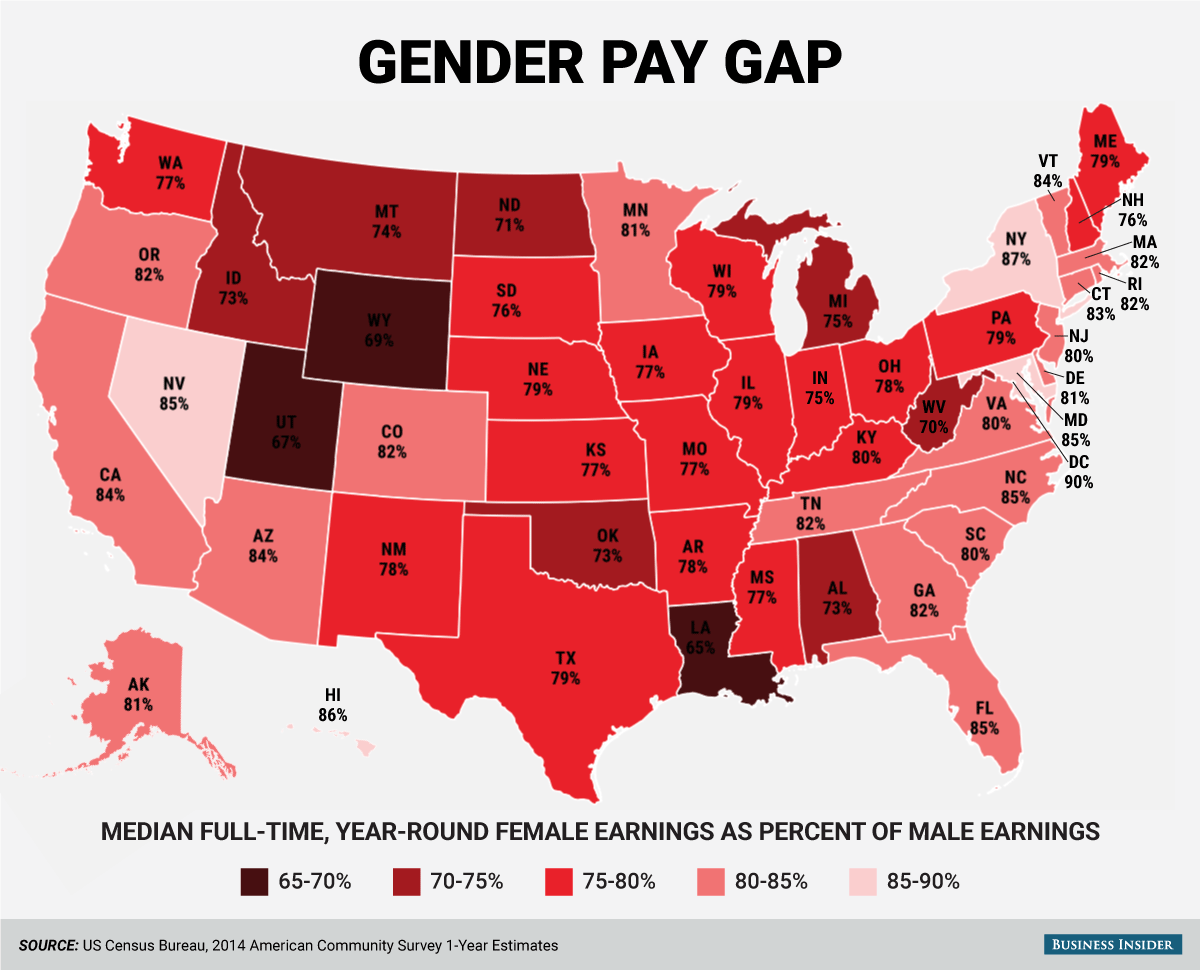The Brilliant Way Iceland's Women Are Protesting the Pay Gap

By:
On Monday thousands of women in Reykjavik, Iceland made themselves known when they protested the gender pay gap in their own unusual but brilliant way.
Fourteen percent.
Though Iceland was called "the best country in the world for gender equality" by the Independent, they have their own issues: women are paid, on average, 14-18 percent less than men. So because they're paid about 14 percent less, women decided to leave work 14 percent early.
"According to unions and women's organisations [sic]," the Independent reports, "this means in every eight hour day women are essentially working without pay from 2.38pm." So around 2:38 p.m. local time, women rallied in Austurvöllur square in Reykjavik.
This isn't the first time Icelandic women have protested the gender wage gap.
In 2005, women left work at 2:08 p.m., "the minute they began working for free," the Independent reports. In 2008, it was 2:25 p.m. This means, if things progress (or don't progress) as they have been, it will take 52 years to close the gap.
Gylfi Arnbjörnsson, President at Icelandic confederation of Labour, thinks this wage gap is unacceptable, telling RÚV (Icelandic National Broadcasting Service),
"No one puts up with waiting 50 years to reach a goal. It doesn’t matter whether it’s a gender pay gap or any other pay gap. It’s just unacceptable to say we’ll correct this in 50 years. That’s a lifetime."
If Iceland is considered the best even with their wage gap problems, where does the United States stand?
As ATTN: previously reported in March, women still, on average, earn less than men do in all 50 states.
 Business Insider - businessinsider.com
Business Insider - businessinsider.com
Furthermore, working women in the United States "still earn about 78 cents for every dollar a man earns, even in 2016," according to ATTN:'s Kyle Jaeger. In some states, the situation is far more dire than others.
For example, in Louisiana "women earn about 65 cents for every dollar a man makes," Jaeger wrote.
How has the wage gap been addressed in the 2016 election?
Democratic presidential nominee Hillary Clinton has long been vocal about the gender wage gap. In a roundtable discussion in April, she mentioned the Paycheck Fairness Act (also known as the Equal Pay Act), a proposal to amend the Fair Labor Standards Act of 1938 bill to "prohibit against sex discrimination in the payment of wages."
At the roundtable Clinton said, "the failure to ensure equal pay for women also impacts families and the broader economy," according to Time Inc's Money magazine. "Some say this is just a problem for women, that men don’t have to worry about it. But that’s just wrong."
Donald Trump is less clear on the issue. Last August Trump said, "if [women] do the same job, they should get the same pay," The Hill reports. But he immediately followed that with "when you have to categorize men and women into a particular group and a particular pay scale, it gets very — because people do different jobs. It’s very hard to say what is the same job. It’s a very, very tricky question."
A few months later, he provided little clarification, saying, "you’re gonna make the same if you do as good a job," Time reports. He hasn't tweeted anything about the pay gap, and there is nothing on Trump's policies page on his official website addressing the issue.
The Bottom Line?
The protest in Iceland was perhaps summed up best by one woman: Una Torfadottir, an Icelandic activist, spoke in front of a crowd of thousands, proclaiming, "no woman chooses to be oppressed. No woman chooses to get paid less than men."
